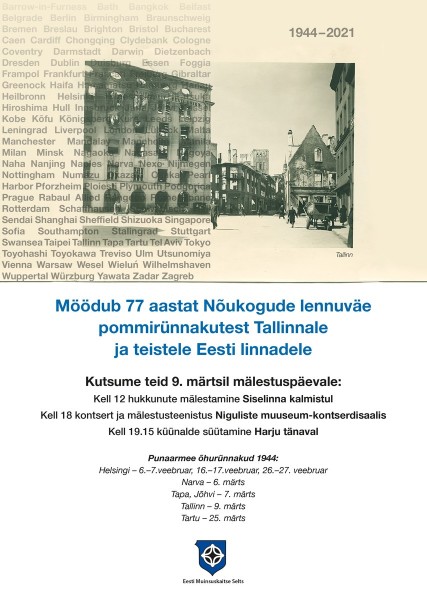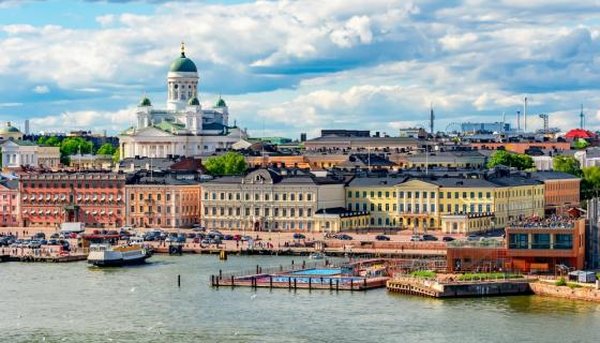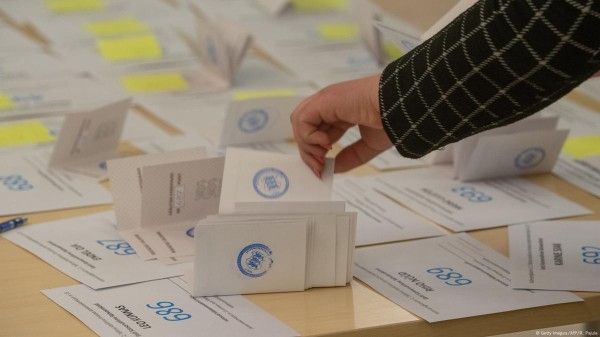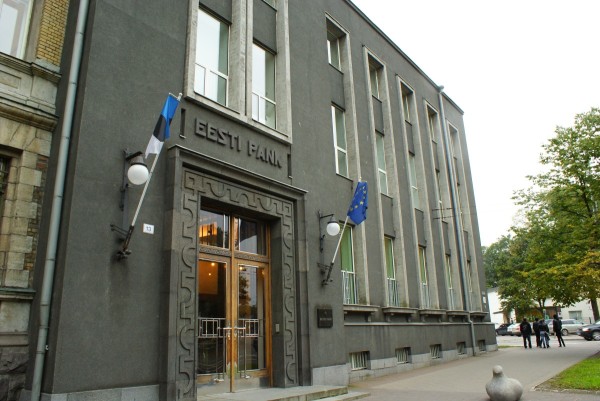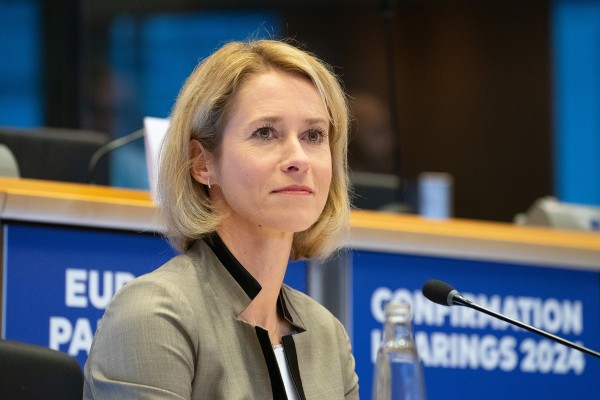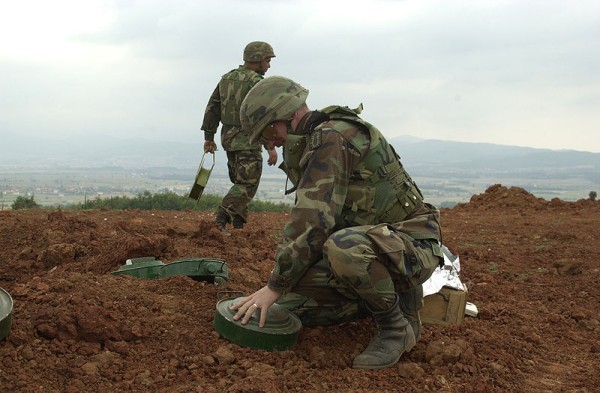The French palaeontologist, geologist, philosopher and Jesuit pastor Pierre Teilhard de Chardin (died 1955) once wrote that everything is the sum of the past. It is difficult, if not impossible, to understand the current situation without knowing the past.
Life’s music is silent if we rip off the strings. We can never forget the Soviet Union’s air attack on my birthplace and hometown Tallinn and other Estonian cities that took place 77 years ago.
Excellencies, fellow citizens of Tallinn,
Everything started on 23 August 1939 with the signing of the Molotov-Ribbentrop Pact and its secret protocols. Nazi Germany and the Soviet Union targeted Eastern and Central Europe. After Westerplatte on 1 September 1939, the chariot of war rolled implacably towards Maarjamaa.
In the late evening of 26 February 1944, I saw the burning glow of Helsinki from the window of my father’s friend Reisman’s apartment in the courtyard of a building on Kiriku Street, and it scared me. Thousands of Estonians fled to the West, many of them perishing on the way in fishing boats and ships. Many lost all hope of escape because of storms, torpedoes and planes.
By 1944 the battles of the Red Army had already reached Narva. On 6 March they bombed the city, destroying its beautiful Old Town. Like the bombing of Tallinn on the night of 9-10 March, this was a pointless crime against humanity. Half of Tallinn was destroyed in the March bombing of 1944.
The bombing of Tallinn, my birthplace, was a terrible experience for me as a child. “Stalin’s Christmas Trees” suddenly lit up the whole city, and then came the first wave of bombers. I remember to this day the conflagration, like the flames of hell. I remember the sound of deadly explosive and incendiary bombs, the whistle of fragments flying through the air, the terrible heat from the burning wooden houses, the wail of people fleeing. Since there was a small ammunitions store in our neighbourhood, that made things even worse. I was at home with my mother. Our building, and all the buildings around it, burned in the raging fire. The flames broke into our apartment. We were barely able to grab a few items of clothing and stuff them into our suitcases. My mother got out at the last second, mere moments before the roof of the communal laundry fell in. We fled to rather a large shelter in the cellar of a stone building at Tartu Road 39, which was full of depressed unfortunates who had just lost their homes. We were packed in like sardines.
Advertisement / Reklaam
Advertisement / Reklaam
Eventually leaving the shelter, running through the fire, I found a small sled in the yard of the neighbouring building on which we stacked a few suitcases and began our journey out of the city. Since there was very little snow, it was quite hard going, the trek up to Lasnamäe. From there we headed in the direction of Tartu – further and further from our city. There were a lot of people making their escape. This crowd of unfortunates reminded me of a long line of prisoners. I still recall to this day the terrible smoke and the reek that shrouded the city for a couple of weeks afterwards. You don’t forget something like that. We were looking for somewhere warm to sleep on the farms by the road. Eventually, one of the farmers took pity on us and gave us shelter. Around 20 people were already sleeping on the floor of his enormous farm house. I will never forget the compassion that farm family showed, or their willingness to help us. Back then a stranger’s worries still mattered to others!So we had lost our home, and my whole world – small though it may have been – had shattered into pieces. We knew nothing of my father, because he had been in Rakvere that tragic night. My beloved birthplace and hometown had been severely wounded. A sad fate and challenging future began here for both myself and my parents.
9 March changed my family’s life forever. My happy childhood came to an abrupt end in those flames. I was then but nine years old. Just a boy. We had lost our home at Heeringa (Turu Street) between the Johansen Paper Factory and the Vellamo Lemonade Industry. The massive fire destroyed all the wooden buildings of the present Central Market. Only a couple of limestone buildings were spared and a few scorched fruit trees were standing.
Tallinn’s population was now divided into two groups: those who still had their homes; and those who had been left without shelter. Unfortunately, I was one of the latter. There were about 20,000 of us in the same boat. My mother and father had to start from scratch. The Soviet authorities had requisitioned my father’s newly bought Opel Admiral in 1940. I felt very sorry for my beloved parents. I experienced severe trauma and a nervous breakdown, as a result of which my head quivered for years. This is a symptom known as a functional tremor. Fortunately, this entitled me to a so-called ‘white passport’ and I was exempted from military training. I was physically very fit, mainly due to weightlifting and my active lifestyle, which eventually helped my mental health get back on track.
Advertisement / Reklaam
Advertisement / Reklaam
We suffered even more losses in our family. My two uncles on Hiiumaa, Ilmar and Friedrich Spriit, were deported to Siberia, where they were killed. My third uncle managed to escape to Sweden with his family. I lost two uncles on my father’s side. Heinrich Pullat drowned with his wife and two daughters, who were the same age as me, on the Nordstern in a Soviet torpedo attack near Klaipėda (then Memel). Many famous Estonians died with them.My Polish wife Wiesława-Barbara Multańska’s father fought against the Germans in Armia Krajowa and was murdered in a Nazi concentration camp in Gross-Rosen. Prior to that he suffered at the infamous Pawiak prison in Warsaw and at Auschwitz for some time. Wiesława’s mother Jania was imprisoned in one of the camps in Warsaw, from which she was able to escape purely by chance – she gifted the golden cross she wore to a German guard. At this, he told her: “Go now! Run! I have a daughter at home too!”
A lot of people have written about the bombing of Tallinn and its consequences. Unfortunately, no one has yet managed to analyse in any depth the heartache of the people who lost their homes and those close to them, their struggle to survive. Historians, sociologists and other researchers have a long road ahead of them to restoring the historical memory and truth.
Today we live in a new era. Estonia is again an autonomous and independent country. At the end of the last millennium we had the chance to unify the whole of Europe peacefully for the first time. Before, there had only been attempts to unify Europe by force. At present there is not a single country in Europe which would be able to accomplish this with military force or which would even be interested in starting a global conflict.
It would be a mortal sin if the nations and countries of the Old World did not use this unique opportunity for peaceful cooperation.
Today, sadly, we do not know what tomorrow will bring in this restless world of ours. I personally wish that during these hard times history would be the teacher of the future and that the tragic brutal events of the past will never be repeated.
Advertisement / Reklaam
Advertisement / Reklaam
Antoine de Saint-Exupery wrote in his memoirs, entitled Wind, Sand and Stars, that we are all crew members of one and the same ship who are threatened by a storm, and thus we need to act together if we want to survive.I dedicate my own fragment of memory to the victims of the bombing, to my family, friends and colleagues, and to all of Tallinn’s history buffs who love the city as much as I do.
Ad multos annos to us all.






